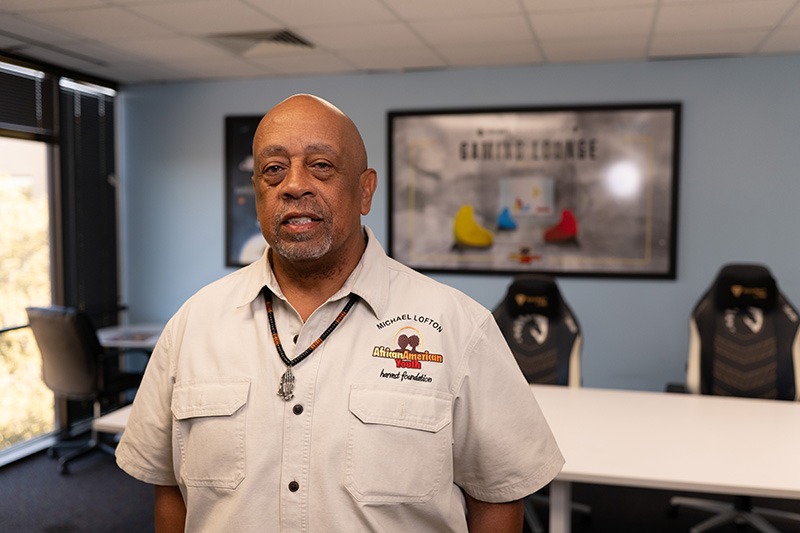March 13, 2025
The African American Youth Harvest Foundation (AAYHF) is many things.
It’s a hub for community, a food pantry, a youth center, a resource for the unhoused, and a place where health care can be accessed for those with little support elsewhere.
Above all, it’s a space where someone in Travis County – anyone – can ask for help.
“The mission of the African American Youth Harvest Foundation is to meet all of the unmet needs in our community, and to provide a basic set of resources – a one-stop-shop and ecosystem (for support),” said Michael Lofton, the chief executive officer and executive director of the non-profit foundation.

In September 2023, the AAYHF began operating the Harvest Trauma Recovery Center, a first-of-its-kind program in Texas offering behavioral health resources to survivors of violent crimes and post-traumatic stresses. The center follows a national model of assertive care management, Lofton said, and patients have access to therapists, counselors, social workers, and medical professionals.
In conjunction with the center, the AAYHF can also enroll individuals in Central Health’s Medical Access Program (MAP), a health coverage program for Travis County residents living at or below 200% of the Federal Poverty level.
“We couldn’t have made it without the support of Central Health,” Lofton said.
The AAYHF, meanwhile, can provide something as simple as a bus pass to a person needing help, coordinate access to MAP, or even provide behavioral health counseling. Youth in Travis County have access to science, technology, engineering, and mathematics (STEM) programs like 3D printing, robotics and computer science, while programs such as tutoring and esports education are also available.
“When someone comes here in the midst of trauma, we don’t have to say we’ve already met our goals (or hit program quotas),” said Lofton, whose foundation has been operating continually since 2007. “Our partnership and relationship with Central Health has allowed us to keep going.”
Lofton is a native Austinite. In the 90s, he founded the African American Men and Boys Conference and the African American Women and Girls Conference, two organizations which sought to connect mentors to teenagers in disadvantaged areas of Austin to help address low graduation rates. At one point, he said, he held 48 conferences in 48 months, serving thousands of young children in the city.
Those two conferences became the genesis of the AAYHF, which grew into a community-based organization that sought to remove barriers of care and aimed to create long-term successes that addressed social determinants of health, education, and finances.
Today, the AAYHF provides a variety of educational programs and serves anywhere from 6,000 to 8,000 youths annually, Lofton says. But it also has elevated its mission to serve just about anyone.
Lofton says his foundation’s goal is to provide layers of service rather than focusing on a single program.
“If we’re going to have an impact on a child, we have to understand the environment that child lives in,” he said. “So being able to understand not only the child, but the mother and father and siblings …kids don’t typically walk away when you’re not just focusing on them, but the entire family.”
The AAYHF is closely aligned with a bevy of additional resources, including a range of non-profit organizations and agencies – nearly 30, in fact – inside its three-story building at 6633 US-290 that can help to serve people from underserved communities heal from trauma or find support.